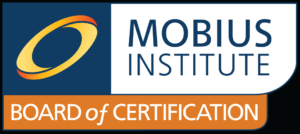Where are you on the journey to reliability improvement? If you are new to the program, or you are interested in learning more so that you can begin a new program at your plant, then the Asset Reliability Practitioner [ARP-A] “Reliability Advocate” course is precisely what you need.
Improving the reliability of physical assets takes far more than just monitoring their condition, improving lubrication practices, and making some improvements to the maintenance department. To have a truly successful program you must understand how to add value to the organization and thus gain senior management support. You must have the support of the entire organization, not just a small group of evangelistic condition monitoring and reliability experts. You must have a coordinated effort between maintenance, operations/production, engineering, finance, and the reliability group – no more silos. And you must follow a strategy that will enable you to build the program, layer upon layer, to achieve milestones and build on success.
The ARP-A Reliability Advocate program will provide a holistic view of how to improve reliability and plant performance. It will explain the implementation process and all the essential elements necessary to have a truly successful program.
The course begins with a summary of why reliability improvement is so important to the future of an organization. But then it busts the myths associated with reliability improvement and asset management; there are so many misunderstandings in the industry that it is essential to get everyone on the same page so you avoid the common traps.
Next, we provide an overview of the implementation process: how to get started, how to gain senior management support, how to change the reliability culture so behaviors change, how to break out of the reactive maintenance cycle of doom, and how to establish a sustainable reliability improvement initiative. If you already have a program, you will learn how to assess its progress and re-focus and re-energize your program.
More than one day is spent on the common technical elements of reliability improvement. You will feel comfortable with defect elimination, the asset strategy (including Reliability Centered Maintenance, Preventive Maintenance Optimization, and Failure Modes, Effects, and Criticality Analysis), the asset criticality ranking, Pareto analysis, precision maintenance, and asset care, operator driven reliability, condition-based maintenance and all of the common technologies, lubrication best practices and contamination control, precision shaft alignment and rotor balancing, and root cause analysis. Yes, there are a lot of topics, but with our unique simulations and animations, you will be amazed at how confident you will feel with the subjects once you’ve completed the course.
Between the discussions, lessons, case studies, and polling (so you can make sure you understand what you think you understood), you will come away with a totally new perspective on how to improve reliability and performance in your organization.

Would you like more information or want to register for the course? We can help to facilitate the best training experience for you and your team with onsite, classroom, remote learning, and other options available.